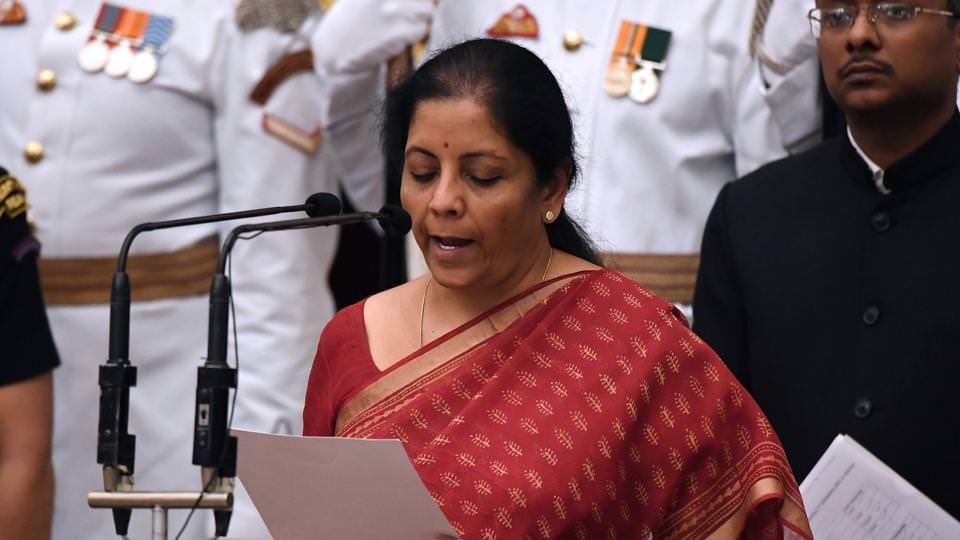Nirmala Sitharaman, a Rajya Sabha MP from Karnataka, my current home state, was appointed as the second female defence minister of India. The first one was Indira Gandhi, who held this position for a very short time before she became the Prime Minister. She is also one of two women in the extremely powerful Cabinet Committee on Security (CCS) which consists of the PM, the Home Minister, Finance Minister, Minister for External Affairs and the Defence Minister. There is much rejoicing since it is only the second time that a woman has been appointed a defence minister in India. Ms. Sitharaman has a good resume with a degree from JNU and a corporate career prior to becoming active in politics.
Should we all celebrate Nirmala Sitharaman’s victory as a sign of women’s “empowerment”? That depends on whether you believe her appointment will improve things for women in India. Of course Ms. Sitharaman’s victory as an individual act of breaking the glass ceiling must be celebrated. In the absence of any political connections or godfathers/godmothers in Indian politics, this is indeed an achievement. However it should also be noted that Ms. Sitharaman’s rise to political ascendancy in the BJP is not independent of her privileges as a Brahmin and upper-middle class woman in India.
Nirmala Sitharaman’s political ascendancy is not independent of her privileges as a Brahmin upper-middle class woman.
Nirmala Sitharaman’s promotion to a politically powerful position must also take note of the fact that there is enough evidence to indicate that women as Members of Parliament are essential for signalling purposes, for serving as role models to young girls. However having women visible in politically powerful positions is not enough on its own to encourage more equitable outcomes for women.
On the Global Gender Gap report 2016, India scores dismally on all metrics except one – political empowerment. We are 9th in the world. That is because – of the four sub-indicators, having a female head of state has a disproportionate impact on the scores. We are ranked 2nd in the world on years with female head of state (calculated in the last 50 years).
If we closely examine the other political indicators, women in Parliament (112th rank) and women in ministerial positions (50th rank), the performance is less than stellar. It is telling that our women in Parliament rank is similar to our educational attainment rank (113th rank).
having women visible in politically powerful positions is not enough on its own to encourage equitable outcomes for women.
For health and survival we are 142, second from bottom, of 144 countries ranked in the Global Gender Gap report. So having female heads of states – a Prime Minister and a President appear to not have impacted outcomes that really matter – economic participation of women, health and survival and educational attainment.
There are no guarantees that Nirmala Sitharaman’s promotion will translate into tangibly positive outcomes for women and girls in India. In fact we do not know how she voted in the Parliament on issues related to women and children, because as PRS indicates for Ministers no data are collected since they “represent the government in debates”.
we do not know how she voted in the Parliament on issues related to women and children.
Further, the portfolio that she has been assigned may not give her many opportunities to flex her feminist muscles (assuming she has some), other than opening up questions on women’s appointments in combat in the armed forces. Further, there is a deathly silence on the 33% reservation for women in the Parliament, an issue that Brinda Karat of the CPM, has revived again with this appointment.
Most importantly, the BJP does not have a track record for holding stances that are particularly gender friendly, despite the rhetoric of beti-bachao and beti-padhao. The watering down of Section 498(A), the decision to not criminalise marital rape, the lack of attention to declining sex-ratios across India, gender-based violence on women from religious minority groups in Gujarat and in Uttar Pradesh and the uncalled for attention paid to women who marry outside their faith by terming it love jihad – are all examples that clearly demonstrate the party’s attitudes towards causes of gender equality.
the BJP does not have a track record for holding stances that are particularly gender friendly.
So before we celebrate Ms. Sitharaman’s victory, let us be guardedly optimistic.
About the author(s)
Sreeparna Chattopadhyay has a Ph.D. in Cultural Anthropology from Brown University with research interests in gender and its intersections with health, education family and the law. She is an independent researcher.




